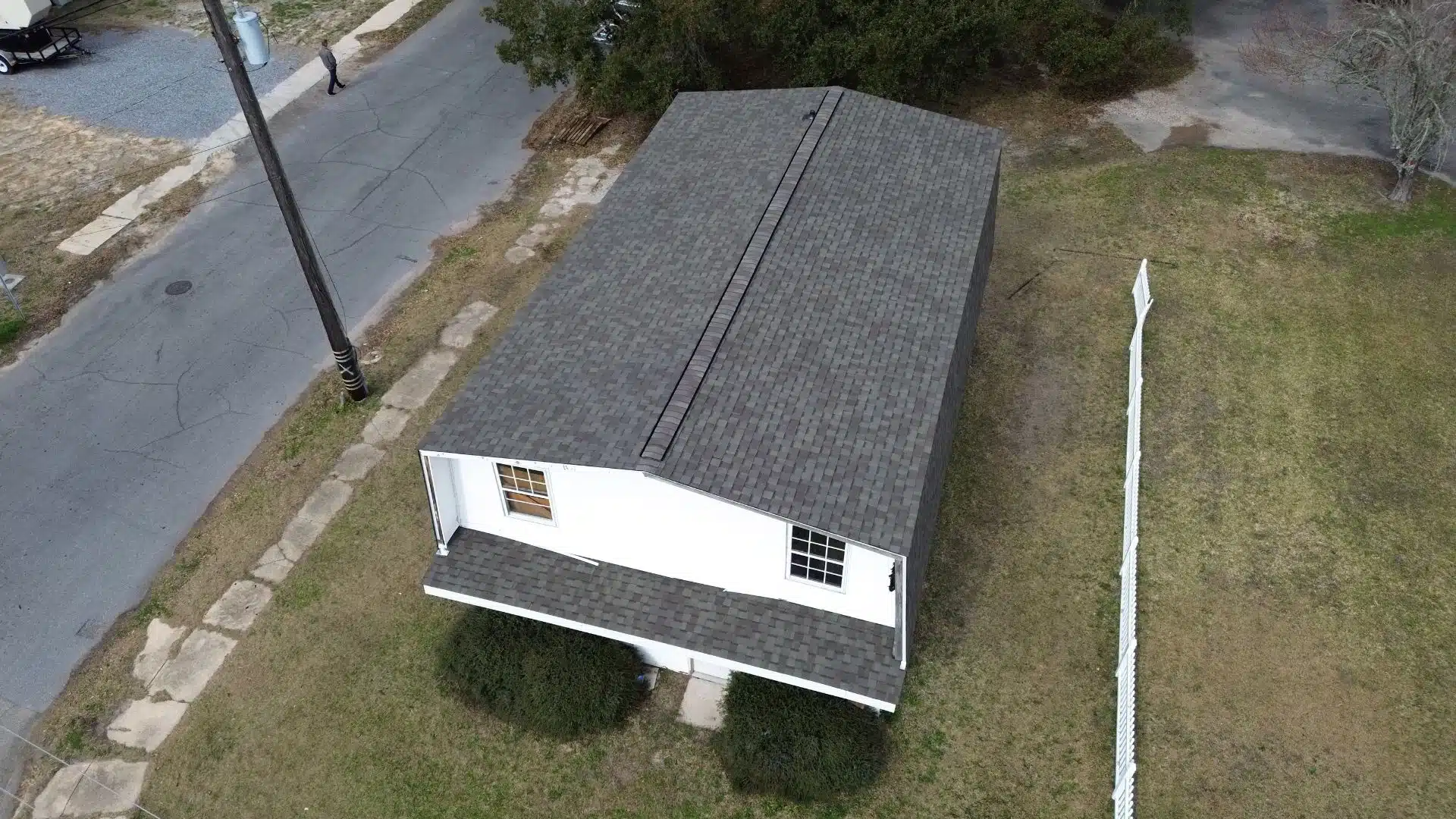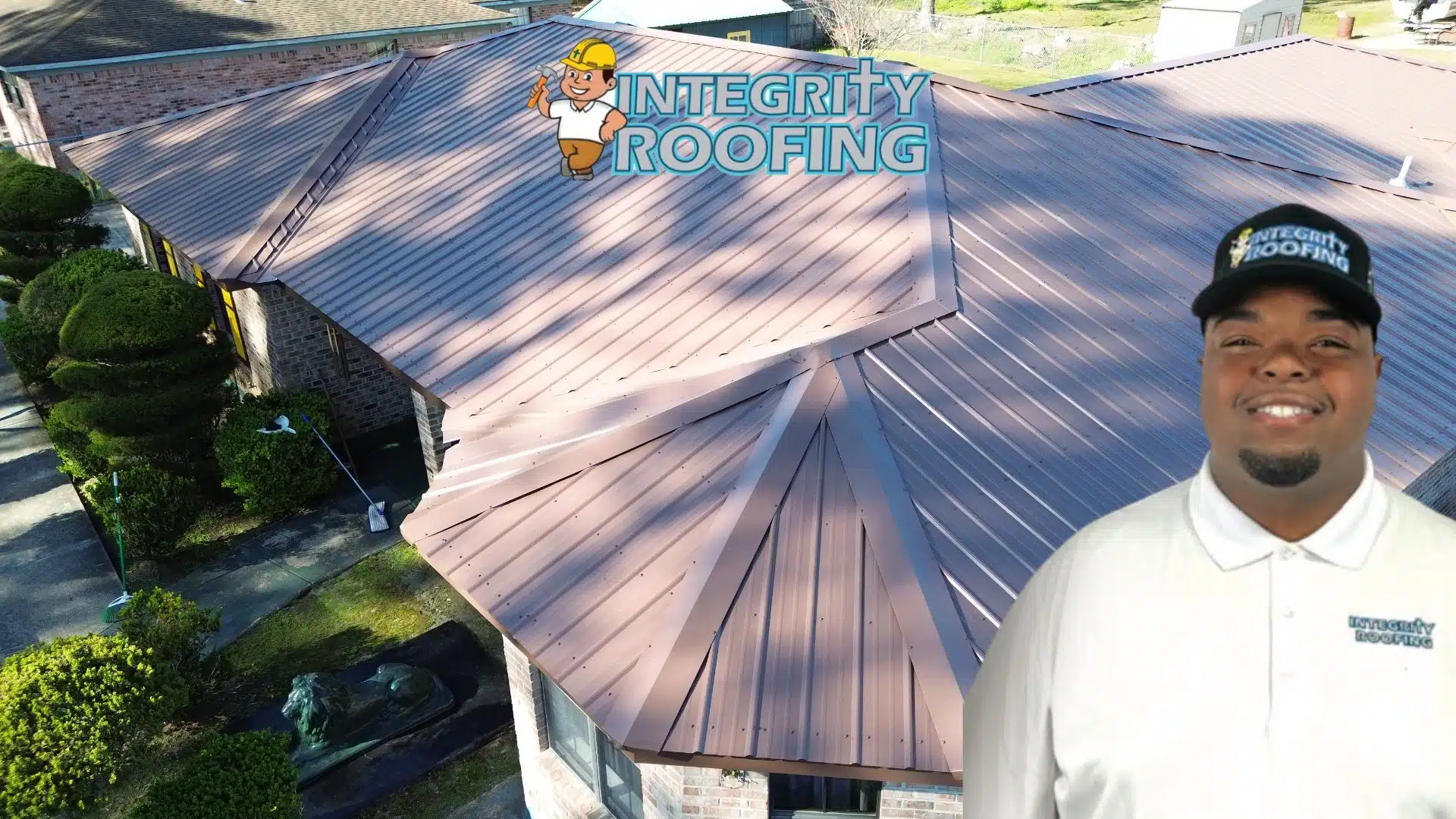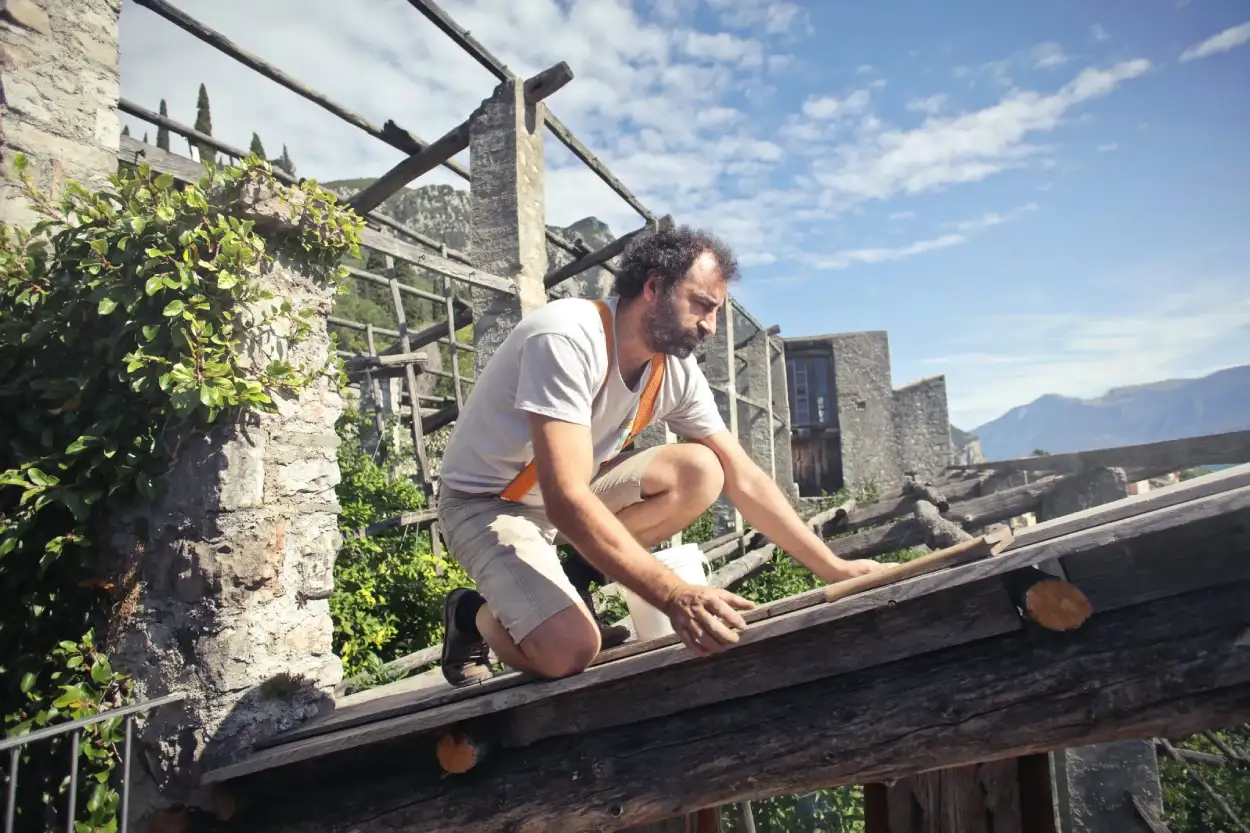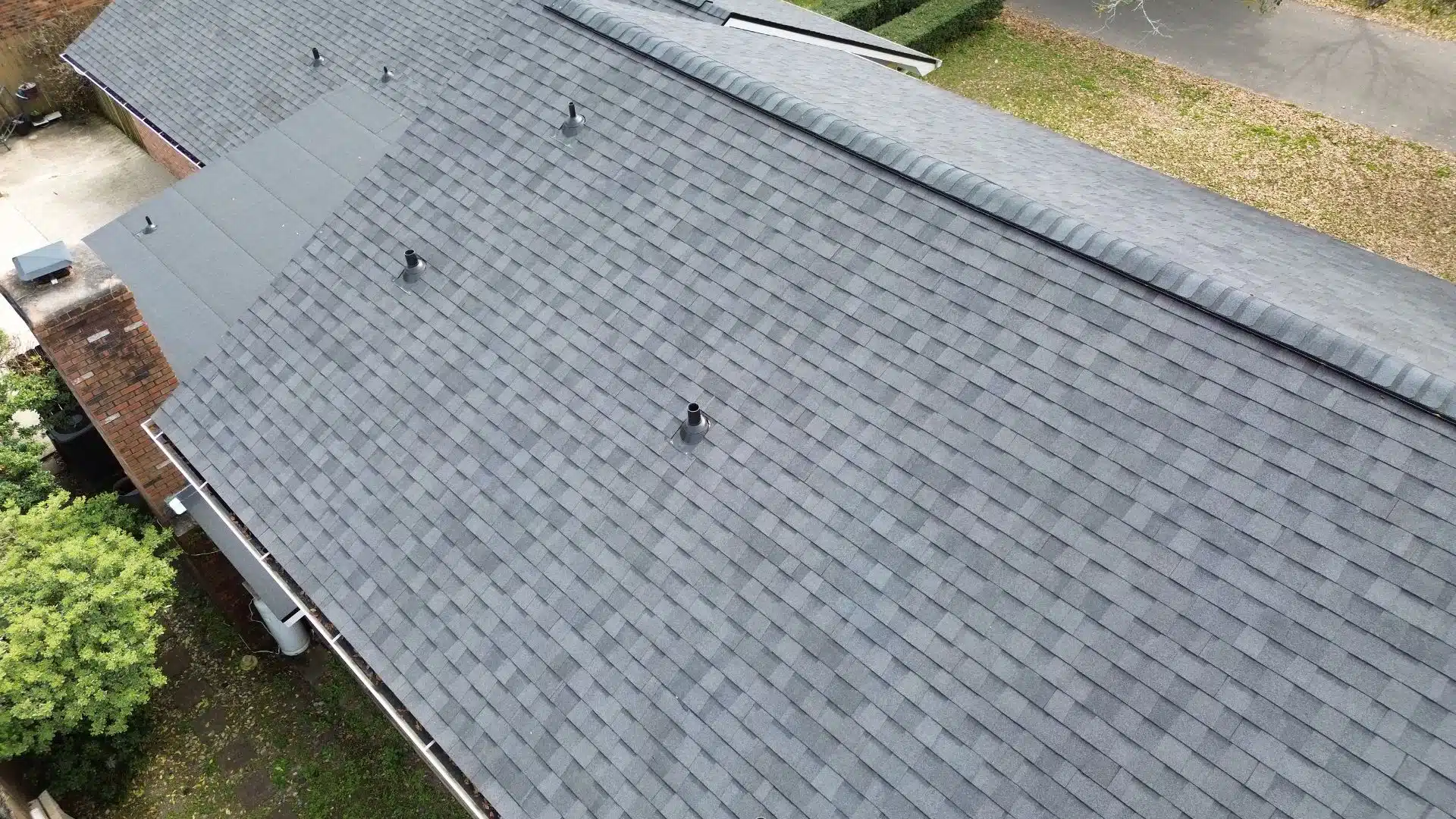Living along the Gulf Coast means preparing for more than just scenic sunsets and warm breezes—it means gearing up for hurricane season every year. With storms growing stronger and more frequent, homeowners must prioritize hurricane-resistant building materials, starting from the top down. Your roof is your home’s first line of defense against extreme winds, flying debris, and torrential rains. That’s why choosing the right roofing system isn’t just a preference—it’s a necessity.
If you’ve ever searched for a roofer near me or a roofing company near me, you already understand the importance of local expertise. Professionals familiar with Gulf Coast weather know which roofing materials offer maximum protection. In this blog, we’ll explore the best hurricane-resistant roofing options available—diving into their wind resistance, durability, lifespan, and more—so you can make an informed, storm-smart decision for your home.
Metal Roofing
Wind Resistance
Metal roofing systems are widely regarded as one of the most reliable choices for hurricane-prone regions. These roofs can withstand sustained winds of 140–160 mph, and some high-end systems are even rated for gusts up to 180 mph. Their interlocking panels and superior fastening systems make them ideal for homes along the Gulf Coast.
Durability and Lifespan
When properly installed and maintained by a reputable roofing company near me, metal roofs can last between 40 to 70 years. They resist corrosion, fire, mold, and mildew, making them a long-term investment for homeowners who want peace of mind during storm season.
Types of Metal Roofing
- Aluminum: Lightweight, corrosion-resistant, and perfect for coastal environments with salty air.
- Stone-Coated Steel: Combines durability with the textured appearance of more traditional materials like shingles or tile.
- Standing Seam Metal: Known for its sleek lines and superior waterproofing capabilities.
Pros and Cons
Pros:
- Exceptional wind and water resistance
- Long lifespan
- Fire-resistant and low maintenance
Cons:
- Higher upfront cost
- May dent from hail or falling debris (though stone-coated options can mitigate this)
Ideal Home Types / Locations
Metal roofs are ideal for coastal homes, modern designs, or any property where maximum storm protection is a priority. If you’re asking, “Which roofer near me specializes in metal roofing?”—look for licensed contractors who follow hurricane-resilient installation practices.
Supporting Resources
- Swift Roofing Services: Hurricane-Resistant Roofing Options in Florida
- Epic Roofs: The Right Roof for Hurricane Season
- Classic Roof Replacement: Best Roof for Hurricane Season 2023
- Roofs by Integrity: Hurricane-Resistant Roofing Materials That Stand the Test
Clay and Concrete Tile Roofing
Wind Resistance Capabilities
Clay and concrete tiles are another strong contender for hurricane zones. These heavyweight materials can withstand winds between 100–125 mph, making them effective for Category 1 and 2 hurricanes. Proper fastening with hurricane-rated clips enhances their overall wind performance.
Impact Resistance (Clay vs. Concrete)
- Concrete Tiles: Generally more impact-resistant and less likely to crack from debris.
- Clay Tiles: Offer a beautiful, natural aesthetic but may be more brittle in extreme conditions.
Lifespan and Weight Considerations
Both clay and concrete tiles offer impressive longevity, often lasting up to 50 years. However, their weight requires reinforced roof decking. A skilled roofing company near me can evaluate your home’s structure to ensure it can support these materials safely.
Aesthetic Appeal
Tile roofs bring a classic, timeless look to any property. They’re especially popular for Mediterranean, Spanish, or Southwestern-style homes. Available in a wide array of colors, textures, and finishes, tile offers both form and function.
Maintenance Notes
While individual tiles are relatively easy to replace, repairs can be costly due to the labor involved. Working with a roofer near me who is experienced in tile installations can help reduce future maintenance headaches.
Supporting Resources
- South Shore Contractors: Best Roofing Materials for the Florida Climate
- Roofs by Integrity: Hurricane-Resistant Roofing Materials That Stand the Test
High-Grade Asphalt Shingles
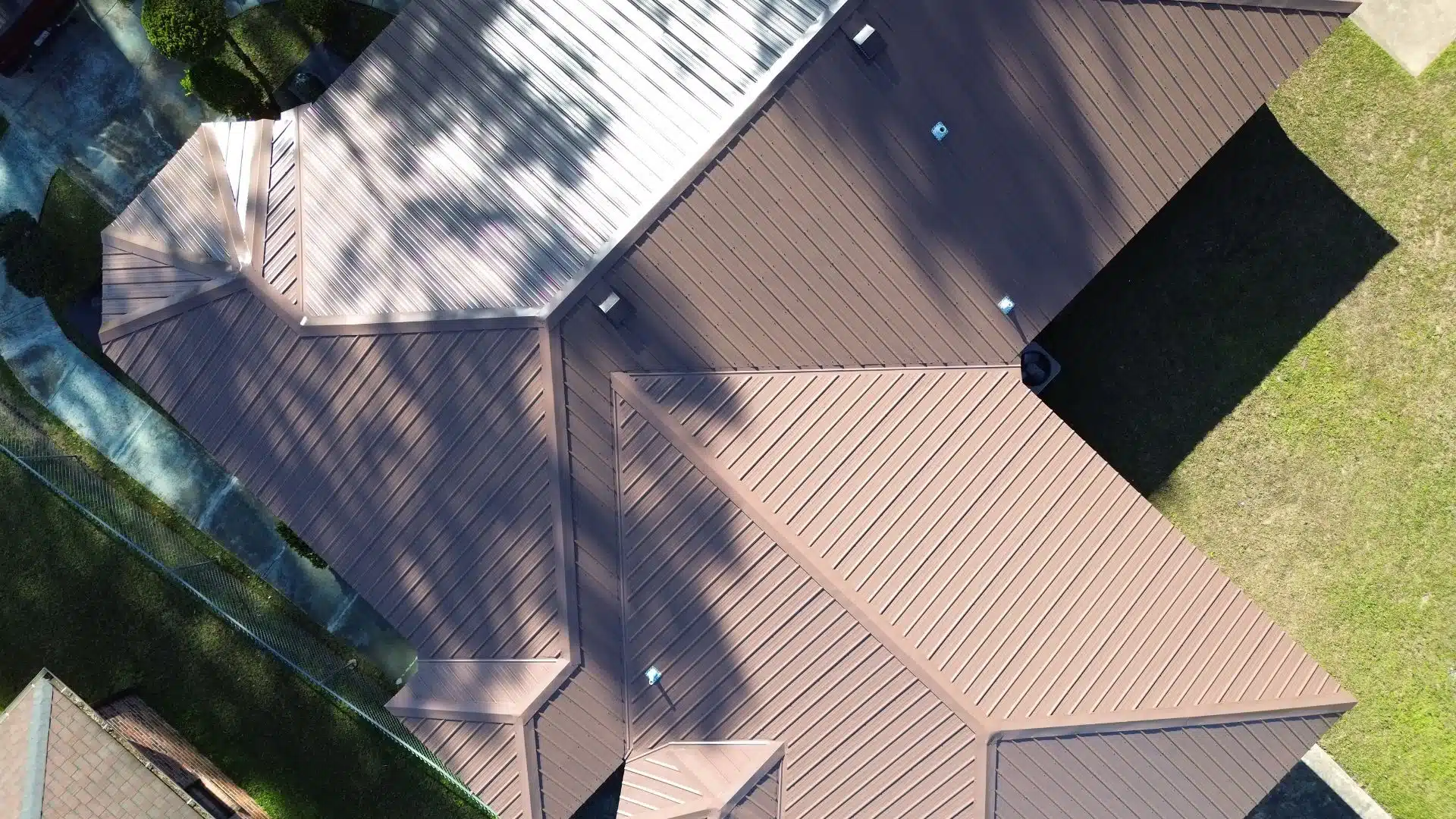
Difference Between Standard vs. Architectural/Impact-Resistant Shingles
Asphalt shingles remain a popular option for MS Gulf Coast homeowners, especially when considering cost and widespread availability. Standard three-tab shingles, while affordable, offer limited wind and impact resistance. However, architectural shingles and Class 4 impact-resistant shingles provide enhanced durability and storm protection—critical in regions prone to severe weather events.
Wind Speed Ratings
Architectural shingles can typically withstand winds up to 110 mph, while impact-rated shingles offer greater resistance to hail and flying debris. While not the top choice for Category 4 or 5 storms, they are suitable for areas facing lower hurricane categories or as part of a fortified system.
Cost and Accessibility
One of the main advantages of asphalt shingles is their affordability and ease of installation. A trusted roofing contractor in Gulfport MS can often complete asphalt roofing jobs quickly, minimizing disruption while ensuring quality work under local code requirements.
Ideal Use Cases
These shingles are best for:
- Homes with moderate hurricane exposure
- Homeowners seeking budget-conscious solutions
- Temporary or secondary residences
Synthetic Slate and Shake Roofing
Wind and Impact Performance
For MS Gulf Coast homeowners wanting premium aesthetics without sacrificing performance, synthetic slate and shake roofing are an excellent choice. These engineered materials can withstand winds of 120–140+ mph and resist significant impact damage—rivaling metal in storm resilience.
Material Composition and Benefits
Made from high-performance polymers or rubber composites, synthetic roofing products offer advanced durability while being significantly lighter than natural slate or cedar shake. This reduces the need for structural reinforcement.
Visual Appeal vs. Traditional Options
Synthetic options are crafted to mimic the beauty of natural materials—delivering the luxury appearance of real slate or shake, without the weight, fragility, or maintenance issues.
Structural Load Benefits
Unlike natural slate, which can place heavy stress on roof framing, synthetic alternatives maintain elegance with lower structural demand. A professional roofing contractor in Gulfport MS can ensure proper installation to maximize both beauty and durability.
FORTIFIED Roofing Systems
What is a FORTIFIED Roof?
The FORTIFIED Roof™ program, developed by the Insurance Institute for Business & Home Safety (IBHS), sets enhanced building standards to improve a roof’s ability to withstand hurricanes, hail, and high winds. For MS Gulf Coast homeowners, this system represents the gold standard in storm protection.
Design and Construction Standards
FORTIFIED roofs include:
- Roof deck secured with ring-shank nails
- Sealed roof decks to prevent water intrusion
- Enhanced edge protection to resist wind uplift
Wind Resistance Ratings
These systems are engineered to withstand winds up to 160 mph, making them ideal for hurricane-prone regions like the Gulf Coast.
Insurance and Cost Savings
Many insurance providers offer discounts to homeowners with FORTIFIED-certified roofs. The upfront investment often pays off over time through reduced premiums and fewer post-storm repairs.
Certification & Professional Installation Requirements
Only certified contractors trained in IBHS standards can install FORTIFIED roofs. When searching for a roofing contractor in Gulfport MS, ensure they’re FORTIFIED-certified and experienced with local storm threats.
Supporting Resources
- IBHS: FORTIFIED Roof Program
- Fortified Roof Installation Tips Every MS Gulf Coast Homeowner Should Know
Additional Considerations
Roof Shape and Slope
The shape of a roof significantly influences how it withstands hurricane-force winds. Hip roofs, which slope on all four sides, tend to perform better under pressure than gable roofs, which have only two slopes and more vulnerable edges.
Aerodynamic design can reduce wind uplift, and steeper slopes help prevent water pooling—key factors MS Gulf Coast homeowners must consider when designing or replacing a roof.
Installation Quality
A roof is only as strong as its installation. Proper fastening systems, hurricane-rated clips, sealed underlayment, and deck integrity are crucial for long-term protection. A reliable roofing contractor in Gulfport MS will understand how to follow both local code and best practices for storm resilience.
Maintenance and Inspection
- Routine inspections before and after storm season can catch loose shingles, flashing issues, or clogged drainage.
- Proactive repairs can prevent small issues from becoming costly post-hurricane damage.
Regular maintenance not only prolongs your roof’s lifespan but also ensures it’s ready when the next storm rolls in.
Final Thoughts / Call to Action
For MS Gulf Coast homeowners, hurricane season is not a question of “if” but “when.” That’s why investing in a hurricane-resistant roof is one of the most strategic decisions you can make to protect your family and property.
Whether you’re leaning toward the longevity of metal, the timeless elegance of tile, or the cutting-edge strength of a FORTIFIED roofing system, the right choice starts with expert guidance. Partnering with a trusted roofing contractor in Gulfport MS ensures that your roof is installed to meet both local building codes and high-performance standards.
Don’t wait until after the next storm to realize your roof wasn’t ready. Schedule a consultation today and let a local expert help you choose the best roofing solution for your home’s unique needs.
Your roof is your first line of defense—make sure it’s built to last.
Frequently Asked Questions (FAQ)
1. What is the best roofing material for hurricane protection on the MS Gulf Coast?
Metal roofing and FORTIFIED roofing systems are considered top choices for hurricane protection. Both offer superior wind resistance (up to 160 mph), durability, and long-term performance. A certified roofing contractor in Gulfport MS can help you choose the best material for your specific location and home structure.
2. Are asphalt shingles strong enough for hurricane-prone areas?
High-grade architectural and Class 4 impact-resistant asphalt shingles can withstand winds up to 110 mph and offer decent protection for lower-category storms. While they are not as strong as metal or tile, they are a more affordable option for MS Gulf Coast homeowners with moderate exposure.
3. How do FORTIFIED roofing systems help during hurricanes?
FORTIFIED roofs are built to rigorous standards by the IBHS and include reinforced decking, sealed underlayment, and specialized fasteners. These features help reduce wind uplift, prevent water intrusion, and offer added resilience. Many MS Gulf Coast homeowners also benefit from insurance discounts with FORTIFIED certification.
4. Can I install tile or synthetic roofing on an older home?
Yes, but structural considerations are important. Tile is heavy and may require reinforcement, while synthetic slate and shake are lighter alternatives with similar aesthetics. Always consult with a licensed roofing contractor in Gulfport MS to evaluate your roof’s load-bearing capacity before installing.
5. What should I look for when hiring a roofing contractor in the Gulf Coast area?
Look for contractors who are licensed, insured, familiar with Gulf Coast hurricane codes, and experienced with hurricane-resistant installations. Check for FORTIFIED certifications, local references, and a strong reputation as a roofing contractor in Gulfport MS who understands regional weather challenges.

